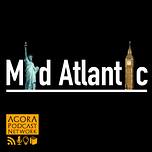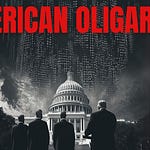This episode delves deep into the Vietnam War, specifically focusing on the My Lai Massacre. The guest, Marshall Poe, an expert historian on the Vietnam War, discusses the causes and implications of the My Lai Massacre, drawing parallels with modern military conflicts. He emphasises the complexity of war, the difficulty in distinguishing between civilians and combatants in counterinsurgency, and the psychological and operational challenges faced by soldiers. The conversation also explores the broader context of the Vietnam War, including its impact on American public perception and its comparison with subsequent conflicts like those in Afghanistan and Iraq.
Key Points Covered in the Podcast:
Nature of the Vietnam War and My Lai Massacre: Marshall begins by exploring why the Vietnam War, particularly the My Lai Massacre, is still relevant today. He challenges the popular perception of the Vietnam War as merely a war of counterinsurgency, suggesting instead that, from the perspective of the soldiers, it was more akin to a war of occupation.
Comparisons with Other Conflicts: The discussion moves to comparing the Vietnam War with other American military involvements, such as those in Afghanistan and Iraq. Marshall highlights the heightened risks in wars of counterinsurgency and how these differ from conventional military conflicts like World War II.
Root Causes of the My Lai Massacre: Marshall delves into the specifics of the My Lai Massacre, discussing the operational and psychological factors that led to this tragic event. He emphasizes the difficulty soldiers faced in distinguishing between civilians and insurgents, which was exacerbated by the hostile environment and the nature of guerrilla warfare.
The Leadership Failure and its Consequences: The podcast highlights the role of leadership in the massacre, with Marshall assigning significant blame to the officers in charge, particularly Lieutenant Colonel Frank Barker. He examines how Barker's ambition and poor decision-making were instrumental in the tragedy.
The Aftermath and Cover-up: The episode also touches on the immediate aftermath of the My Lai Massacre, including the initial cover-up by the military and the subsequent exposure of the event by investigative journalists and whistleblowers.
Broader Impact on American Society: The conversation concludes with a look at the wider impact of the My Lai Massacre on American public opinion about the Vietnam War. Marshall discusses how the massacre significantly shifted perceptions, turning the American public against the war and altering views on military interventions.
Key Quotes:
On the Nature of Modern Conflicts: "When you're involved in what they call a war of counterinsurgency the risk of this kind of thing happening is obviously heightened."
On the Perception and Reality of War: "It's true. There was a draft, but I think if you take the entire, we sent two million Soldiers to Vietnam in total. Most of them are volunteers."
On the Impact of My Lai Massacre: "The magnitude of it made it different in the American mind. And, for good reason."
The Reality of the My Lai Massacre and the Myth of the Vietnam War by Marshall Poe https://www.cambriapress.com/pub.cfm?bid=981
Hosted on Acast. See acast.com/privacy for more information.














Share this post